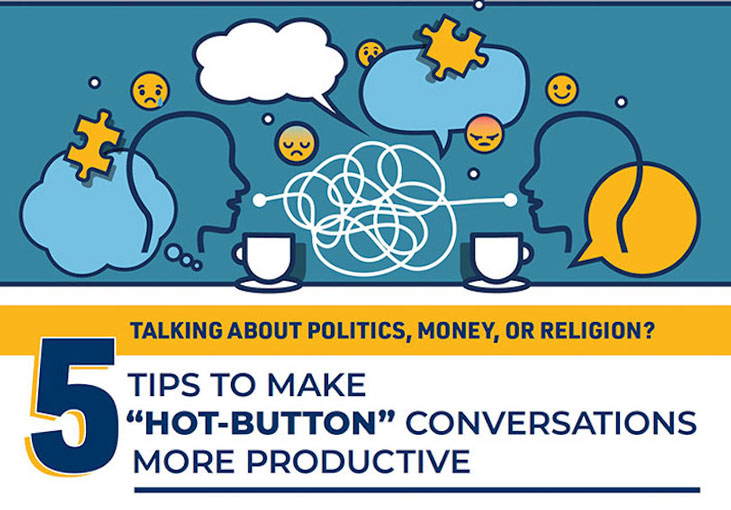Have you ever heard it’s not polite to discuss politics, money, or religion? Have you or someone you know recently argued over a hot-button topic that damaged a relationship? These topics—and any type of disagreement—are tricky to talk about because of confirmation bias.
What is confirmation bias?
Confirmation bias affects all people, all the time. Humans evolved to have confirmation bias because our brains can only handle a limited amount of information at once. Yet we are bombarded by information in our modern world.
Confirmation bias acts as a filtering system that lets you notice only the information that supports your current beliefs and values.
Unfortunately, confirmation bias also causes your brain to filter out any information that contradicts your beliefs and values, which can give you a limited view of the world. And if you do somehow notice information that goes against your beliefs or values, you’re more likely not to remember it or discount it by saying it’s the “exception to the rule,” so you can hold onto your beliefs or values. This causes each of us to walk through the world seeing only the parts that fit our worldview. When we talk with others who hold different beliefs or values, confirmation bias can make it really tough to find common ground.
What is naïve realism?
What makes confirmation bias so hard to overcome during “hot-button” conversations is that you—and those you communicate with—don’t do it on purpose. In fact, you don’t even know it’s happening. This leads both people to think they’re seeing the world as it really is, and that the information each of you sees is the same information the other sees. This is known as naïve realism. The trouble comes because both of you are only seeing part of reality, which is filtered by each of your beliefs and values. When the other person points out information that doesn’t fit with your perceived reality, it’s easy to assume they’re ignorant, intentionally biased (i.e. the people who only watch those news channels), or downright evil.
The key to productive “hot-button” conversations
When you understand each of us can only see part of reality, based on our personal beliefs and values, you have a unique opportunity to see information you might otherwise miss. This shift in perspective can make discussions about politics, money, religion, or other hot-button topics an opportunity to improve your leadership skills, performance, resilience, and well-being. Still, these discussions can be hard and don’t always feel good in the moment. Use HPRC’s “5 tips to make ‘hot-button’ conversations more productive” to optimize these opportunities.
Published on: February 28, 2023





